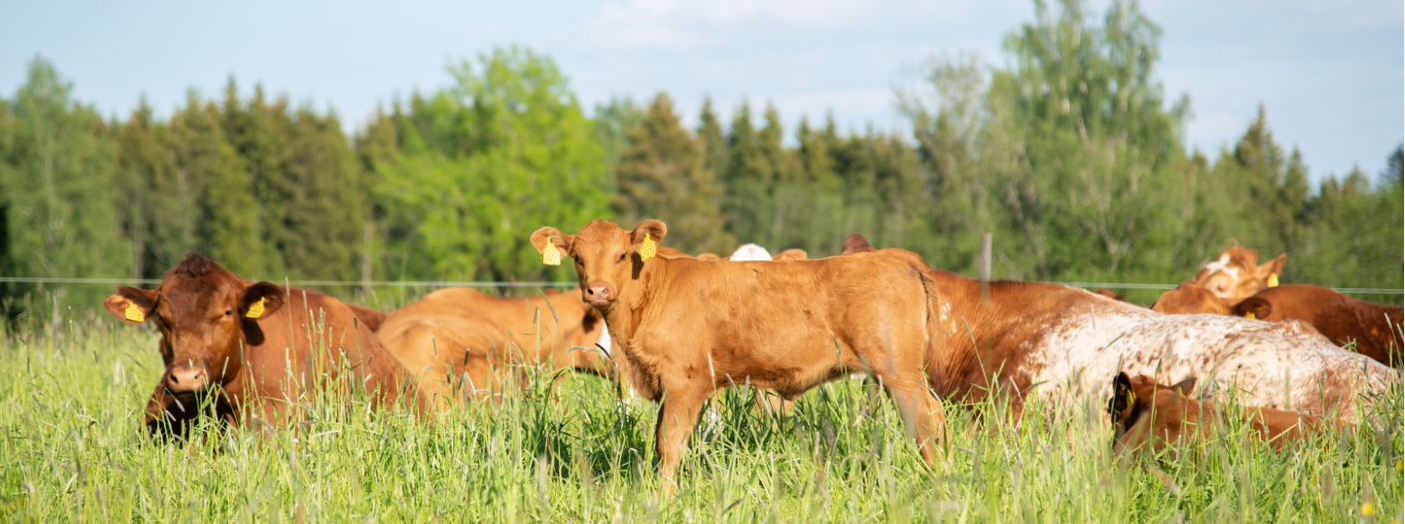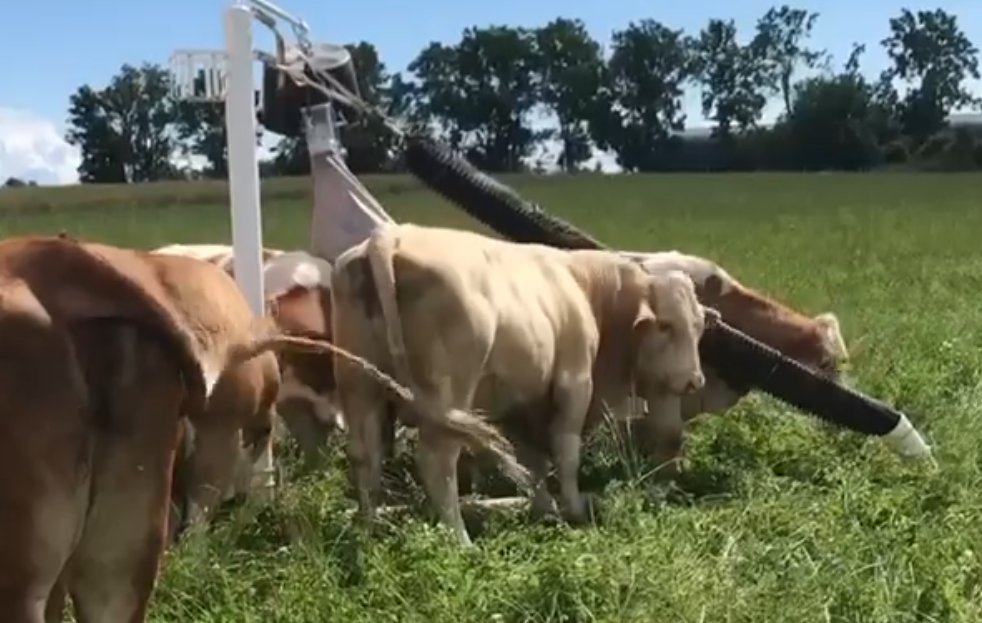
https://ec.europa.eu/eip/agriculture/en/find-connect/projects/bovine-beef-innovation-network-europe
Author: A. Külvet
Annoying insects on the pasture lead to stress and performance losses. Some parasites can also transmit diseases. This problem has led to the need to improve animal welfare during grazing period. The following good practice started to be invented in Estonia.
 Photo: A. Külvet
Photo: A. Külvet
Diagonal scratching posts, which were continually saturated with the diluted essential oil of the neem tree (Azadirachta indica), were installed in cattle paddocks. These devices consist of a spongy core surrounded by coarse chains and suspended on a L-frame, with a robust oil delivery system throughout. Neem tree oil has been proven to deter the feeding behaviour of problematic dipterans like horse-flies (Tabanidae) and has the potential to reduce the number of biting insects, but has not been shown to affect useful arthropods like bees (Apidae). To lower the cost of operation, neem tree oil was mixed with canola oil to produce a 40% mixture. The diagonal position of the scratching post allows animals to rub their backs, stomachs and sides against the material and contact both the oil saturated fabric and the rough metal chains. This helps to coat the animals with oils as well as push away the biting insects which are already in the process of feeding. This good practice gives an opportunity for more welfare during the grazing period and therefore a better use of the pasture. The implementation lasted one grazing season, but there is still further research needed. The main challenge herewith was and is finding the most efficient oil.
Essential oils can be a solution to minimize the stress of grazing animals due to biting insects without causing resistance!
This Good Practice has an Impact on:
- Socio-economic resilience: better usage of pasture
- Animal health and welfare: increased comfort
- efficiency and meat quality: increased average daily growth, less veterinarian cost, increased stock health
